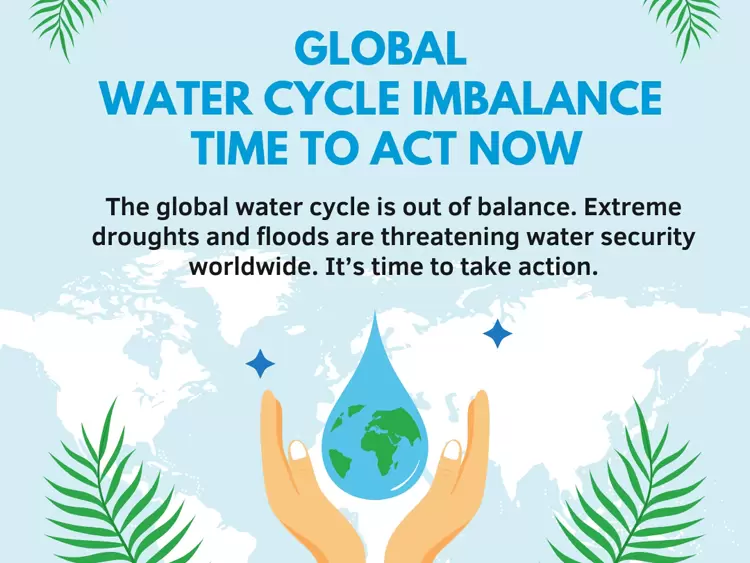Blog

The Global Water Cycle is Out of Balance – Urgent Action Required
The global water cycle, a delicate system that regulates the availability of freshwater, is increasingly disrupted by human activities and climate change. A recent report warns that this imbalance is causing more frequent droughts, floods, and unpredictable weather patterns, endangering ecosystems and water resources globally. As the world grapples with these challenges, experts are calling for immediate action to restore balance and protect the vital resources that support life on Earth.
At Green Water Treatment Solutions (www.greenwts.com), we are acutely aware of the challenges posed by an imbalanced water cycle. Our mission is to offer industries and communities innovative water treatment solutions that conserve and reuse water, ensuring that we can mitigate the impact of water scarcity and environmental changes. By adopting sustainable water management practices, we can all play a role in addressing this global crisis.
The Water Cycle Crisis - Key Insights from the Report
The global water cycle is a natural process where water evaporates, condenses, and returns to the earth in the form of precipitation. However, human activities such as deforestation, over-extraction of groundwater, and the release of pollutants into water systems have caused significant disruptions. Combined with the effects of climate change, these disruptions are leading to:
Increased Water Scarcity
Many regions are experiencing prolonged droughts, resulting in shrinking freshwater reserves. This makes it harder for communities and industries to access clean water for drinking, agriculture, and industrial use.
Severe Flooding
In other areas, changes in precipitation patterns have led to extreme weather events, including more frequent and severe flooding. These floods not only destroy infrastructure but also contaminate water supplies, making it difficult to manage water resources.
Ecosystem Damage
Rivers, lakes, and wetlands are essential for biodiversity, but the imbalance in the water cycle threatens these ecosystems. The depletion of natural water sources harms wildlife, and changes in water availability affect agricultural productivity and food security.
Unpredictable Weather
The imbalance is making weather patterns more erratic, with regions alternately facing too much or too little water. This unpredictability creates challenges for planning water use, agricultural cycles, and infrastructure development.
How Green Water Treatment Solutions Can Help
At Green Water Treatment Solutions, we provide advanced water treatment systems that help industries and communities adapt to the growing challenges of water scarcity and environmental degradation. Here’s how our solutions can make a difference:
Wastewater Treatment and Recycling
Our wastewater treatment technologies enable industries to purify and recycle water, reducing the demand for freshwater and ensuring that water is reused efficiently. This is critical in regions facing water shortages.
Desalination Systems
For coastal areas experiencing freshwater scarcity, our desalination solutions provide access to potable water by converting seawater into usable freshwater.
Zero Liquid Discharge (ZLD) Systems
ZLD technology ensures that no liquid waste is released into the environment. This prevents water pollution and enables industries to reuse water continuously, conserving natural water resources.
Rainwater Harvesting
By collecting and storing rainwater, industries and communities can ensure a backup water supply during dry periods, reducing reliance on unpredictable weather patterns.
Restoring Balance - A Global Effort
The imbalance in the global water cycle is a crisis that requires coordinated action from governments, industries, and individuals. At GreenWTS, we are committed to helping industries implement sustainable water management practices that align with global efforts to address water scarcity and environmental challenges.
Through innovative water treatment technologies, we can help mitigate the effects of climate change, reduce water wastage, and ensure a sustainable future for generations to come.
